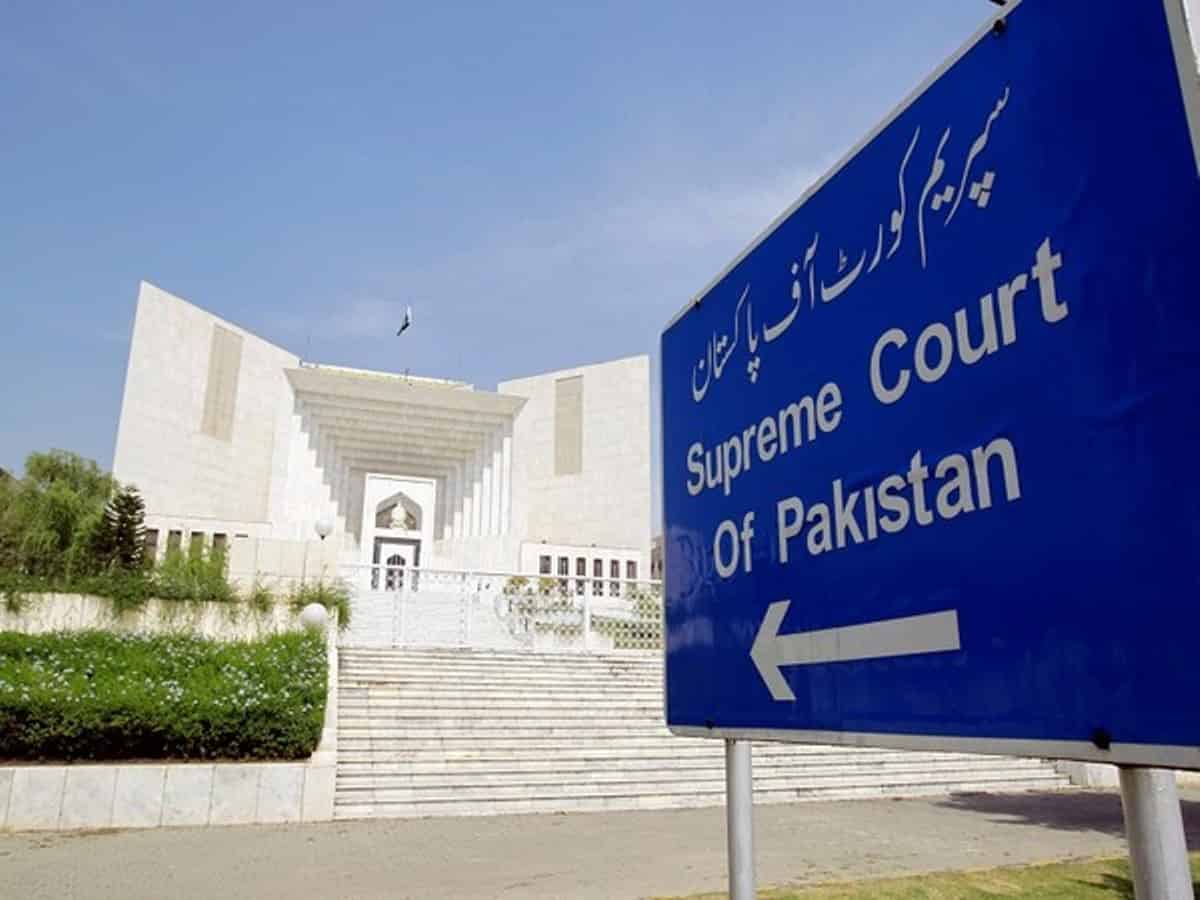
Islamabad: The Pakistan government has challenged the Supreme Court’s majority verdict, declaring illegal the amendments made in the anti-graft law by the previous government, a ruling that will impact many prominent politicians like Nawaz Sharif and Asif Ali Zardari.
The government filed an intra-court appeal (ICA) with the apex court on Tuesday, the Dawn newspaper reported on Wednesday.
It also sought 15 days to file additional documents with a plea that the majority decision was against the facts of the case and contrary to the law.
The government adopted the stance that fundamental rights have not been violated through the National Accountability Bureau (NAB) amendments, and Parliament reserves the right to legislate, Samaa TV channel reported.
On September 15, the Supreme Court, by a majority of two to one, ruled that the public representatives who benefited from the amendments made by the previous Shehbaz Sharif-led government in the National Accountability Ordinance (NAO) will have to face corruption references again.
The amendments to the country’s anti-graft laws were scrapped, and the verdict resulted in the reopening of corruption references, inquiries and investigations against dozens of politicians belonging to all major political parties.
The Supreme Court verdict will have implications of varying levels for several politicians, including former president Asif Ali Zardari and ex-premiers Nawaz Sharif, Shehbaz Sharif, Yusuf Raza Gilani, Raja Pervez Ashraf and Shahid Khaqan Abbasi. Pakistan is expected to go to polls in January 2024.
Raising objections to the order, the government’s appeal stated that the majority judgment suffers from procedural impropriety and is, therefore, liable to be set aside, The Express Tribune newspaper reported.
Through the ICA, the government argued that former prime minister Imran Khan, who had challenged the amendments, was given opportunities during the hearing to make verbal submissions for 27 hearings and rebuttal submissions. In contrast, the government was restricted only to answering queries from the bench.
Similarly, the ICA said the Pakistan Tehreek-e-Insaf (PTI) party chairman was allowed three months to file his written submissions, but the government’s request for a grant of the same time or at least three weeks was not entertained.
The appeal said that the government hurriedly prepared and filed the written submissions on September 12 after being left with no other option, the report said.
It said that another of the government’s requests seeking postponement of the case or constitution of a full court bench for hearing the petition in view of the Supreme Court (Practice and Procedure) Act, 2023, was also not decided.
The appeal said that the court’s majority judgement was contrary to the principles of natural justice and due process of law and added that it was also against the dicta law laid down by the SC larger bench in the 1990 Amanullah Khan case.
The ICA emphasised that a number of references were returned or transferred to other fora under the amendment act, and as per the information provided by NAB, no acquittals were ordered under the act.
On the contrary, a number of acquittals were ordered under the amendment ordinances promulgated during the PTI government and in some cases, the NAB had gone in appeal and in others, the accused had, the appeal said.
The majority of these appeals and petitions are pending before the high court, but none of the accused, whose references were returned or transferred pending to other fora or appeals, were parties before the Supreme Court, and the facts of their cases were not before the top court, the ICA said.
It stated that the entire premise of the majority judgement was flawed as it assumed that the cases, if transferred to other fora, would not proceed against elected public office holders. It also ignored that a proper mechanism and procedure for the transfer of inquiries, investigations, trials and proceedings was prescribed by sub-section 4 of Section 4 of the Third Amendment Act.
According to the majority decision, cases transferred from NAB or accountability courts can only be tried under the Prevention Corruption Act (PCA), 1947 and Pakistan Penal Code (PPC), 1860. Elected public office holders could not be tried under the PCA or PPC, which, according to the judgement, applies only to persons in service of Pakistan, the ICA contended.
“This finding is incorrect,” the ICA argued, adding that if an elected public office holder was accused of a fiscal crime, he could be tried under the fiscal statutes, like the Income Tax Ordinance, 2001.
Similarly, it added that if that person is accused of money laundering, he can be prosecuted under the Money Laundering Act of 2010.
If the allegation against an elected public office holder was of holding property in favour of benamidars, they could be tried by a sessions court under the Benami Transaction (Prohibition) Act, 2017, the ICA emphasised, according to the report.



